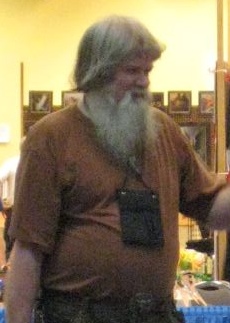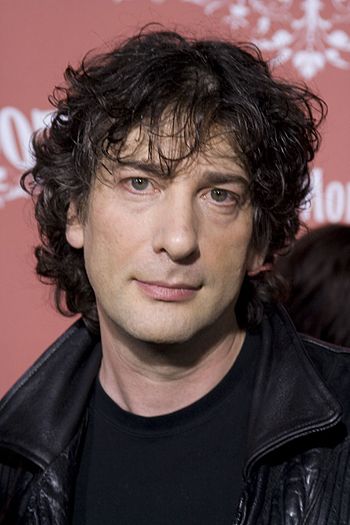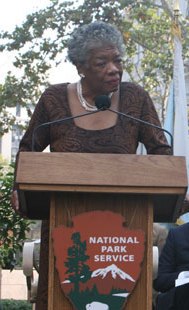Have you ever noticed how often the characters of our novels and stories are beautiful?
What I find fascinating is, sometimes, they aren’t or at least aren’t explicitly described as such – we merely assume they are.
I think this has to do with escapism and romantic notions.
Too, I think it’s down to perceptions.
Now, it’s no good talking about the ruggedly handsome specimen of masculine archtypicality John Carter, Warlord of Barsoom. I suppose there are reasons we could, he’s described in pretty fair detail so we could make and reject all manner of philosophical debates about it; especially since it’s never explicitly stated he’s supposed to be remarkably handsome, only the kind of handsome that comes from being a healthy and fit human with self-confidence.
I’m going to use my own writing for this, though, because they’re my characters so I know them intimately.
Sally, Lauren, their friends: are they beautiful?
Oh sure, Sally describes Lauren as quite gorgeous repeatedly. Thing is … is she a reliable narrator? Most descriptions wherein Lauren is any remarkable beauty are (… wait for it …) from Salencia’s point of view! Sally’s biased. For one, Sally loves redheads. Why? Dunno, she just does. My high school girlfriend was a redhead, and I’ll admit she had a certain charm, and my wife certainly loves my red hair, and for that matter a lot of women I know (men too, come to think of it) … I suppose it’s something about redheads. Still, no one else describes her as beautiful beyond circumstantial points or when talking about her spirit and personality.
Lauren is not ugly, I would imagine, no. Simply put it is hard not to be attractive when you are healthy, fit, and take a certain measure of care in your choice of hair and clothes not in regards to societal expectations, but rather in regard to what suit both your body and your personality. Suffice to say, I do not have either the face shape nor personality to pull off a Pat Benatar or Joan Jett look, on me it’d be unattractive whereas on them it’s bloody stunning. She is what she is, a petite redhead with freckles, and a demure hippie fashion sense, and the musculature of a dancer; she’s healthy, she’s trim … and it’s important to note that healthy is specific. You can work out to the point of unhealthy, all muscle is not actually any better than all fat with regards to your overall health. If coppertopped pygmies are attractive to you, then yes, Lauren is quite beautiful, but if you’re not into that then she generally falls into the realm of “cute”.
Sally, on the flip side, does trend toward more universally beautiful. To each her own, not everyone digs the exotic skin tone, dark hair, etc. But on general terms, while Lauren probably wouldn’t have much of a modelling career, Sally could. She’s something between 5′ 6″ and 5′ 8″ (167 – 173 cm), proportioned like Shakira, with lots of leg, and features reminiscent of Aishwarya Rai (especially with regards to her hair); Sally could model pretty successfully (well, if she had the personality for it).
The rest actually aren’t described. They’re as pretty or ugly as you’re comfortable picturing. Though from my point of view the characters are all fairly attractive in that generic way that comes from good health.
I mention this because it’s an odd criticism that comes up about fiction, that the characters shouldn’t always be so spectacularly stunning to look at. On principle, I agree. I mean, Bilbo Baggins isn’t supposed to be some playboy with all the lady hobbits fawning over him, and maybe that puts an important detail into his character. I also agree that some fiction goes too far and … just peruse some of the not-so-good fanfiction some time for easy access to an example (though the gods know there’s plenty of it on store shelves too). Romances … okay, they’re given some leeway, for one thing they’re probably narrated from a POV that, like with Lauren, tends toward a bias, the rest is just tradition … for whatever reason, we’re happier with Westley and Buttercup than we are Miracle Max and his wife (whose name utterly escapes me now, even though she has one in the novel). Still, I think, if we look strictly at the text as given, we find more cases where the characters aren’t especially pretty nor especially ugly; generally the heroes are going to need to be healthy and fit, so a measure of attraction comes with that, but beyond it … I think a lot of character beauty is perceived, not narrated.
Verity Price, for example? Is she a Sally or is she a Lauren? She’s in really good shape, and depending how you like the look she cultivates, you could probably go either way; but the real point is … nothing explicitly says one way or the other. My vote is more of a Lauren. Dominic, however, is more of a Sally. He’s got the muscular Fabio-esque euro-hottie vibe turned up to 11 … well, until he talks, anyway. (see: Discount Armageddon and Midnight Blue Light Special.)
Now, to prove that it’s not always just the men who get to be the supreme hotties. Let’s look at Barsoom. Dejah Thoris is, admittedly, not explicitly described possibly to keep her look more timeless, since within Burroughs’ lifetime the epitome of feminine beauty had shifted a few times before he wrote that book. Still we’re given enough to agree with his assessment, and little enough to fill in the blanks with our own opinion – in short, Dejah Thoris is the most beautiful woman on Mars both because you’re told she is, and because she’s put together in the right way to somewhat ensure this. Our good gentleman, John Carter, on the other hand is described in detail. Yeah, he’s got a lot of dashing hero tropes, so he’s going to be handsome in that fit fighting man kind of way; but he’s also described in rather generic terms. He could be any of our brothers, fathers, sons, etc. if they only had spent so much of a lifetime relying on the strength of both their wit and arms to keep them alive.
What’s the point? Why does it matter?
I’ve wondered that too, somewhat. Why should it matter if there’re characters with crooked teeth, or characters with perfect teeth? Both sides, in other words, confuse me. Why are describing teeth unless it’s important? At that point, they’re perfect or crooked based on the dictates of the character. And, I’m sorry, but some people’s teeth grow in quite neatly without orthodontia (which, I might add has existed since the mummies were still being entombed in Egypt) so a pre-modern character can still have perfect teeth (just now you’ve a reason to mention it).
I don’t understand this idea of forcing “unattractiveness” on characters as some kind of Thing. This idea that making all the characters flawless beautifies as some kind of Thing is equally strange. Why can’t we just make characters people? More importantly, why do we need to describe the characters in such tedious detail that the only explanation of why would have to be that we’re jumping up and down going “look! not conforming to unattainable standards of beauty!” or “lookit how pretty (s)he is!!”. Oh, yeah, sometimes you gotta if the bloody point is how (un)attractive the character is. But must you do so for everyone?
I’m starting to sidetrack myself with rambling. Simply put: who cares?! Why should we care? Lauren an Sally only need to be pretty to each other everything else is just decoration; Sally being so remarkably pretty was because that’s what she looked like when she popped into my head as a character … maybe I’d been looking at a lot of Bollywood and Tamil actresses at the time or something. I mean, I don’t think it’s good writing to have every character be this flawless thing nor the opposite. I also just don’t agree with everyone thinking someone is oh-so-gorgeous/ugly. Even people who are considered “classic beauties”, in other words they fit the biological mould of healthy, good genes, fertility/virility, etc. like Marilyn Monroe, Aishwarya Rai, Chris Hemsworth, and Clark Gable aren’t universally adored as beautiful. Some people really just have a thing for this hair colour or that, for darker or ligher skin, etc. Also, Rodney Dangerfield was nothing much to look at, but as I recall the man was married and had children … clearly someone dug something about him, probably even found him attractive.
“Darling, did it ever occur to you that, if Salencia had a six foot nose covered in warts and no teeth and a squint and a great big hairy mole in the middle of her forehead, if you loved her then you’d still see her as beautiful? You’d see past the … mess to the person and heart inside and suddenly … well, very few happy and loving couples don’t think one another beautiful, quirky old songs notwithstanding.”
Excerpt From: Jaye Em Edgecliff. “Love or Lust.” iBooks. https://itun.es/us/0Qu1N.l
Extremism. It’s rarely good; not never or that’d be a paradox and therefore nonsense. We should stop criticising works for having characters who are beautiful or not, and start looking at criticising the works that put big flashing neon signs over it needlessly. Not even for the act itself, but rather for the sloppiness and laziness that it embodies. Believe me, I’ve rarely met a story that was explicitly trying to make people stunning or hideous that wasn’t just all ’round badly written. When telling a story it’s down to that balance thing. Like Show vs Tell – sometimes you should have one, sometimes the other, generally a bit of an ambiguous blending of the two.
Related articles
- Preview: John Carter: Warlord of Mars #3 (graphicpolicy.com)
- Twitter continues to concern me (groupthink.jezebel.com)
- Eddie Redmayne Hilariously Reenacts Failed ‘Hobbit’ Audition (justjared.com)
- New from FFG The Hobbit: Enchanted Gold (gamer-goggles.com)
- This Week in St. Johns County (historiccity.com)











